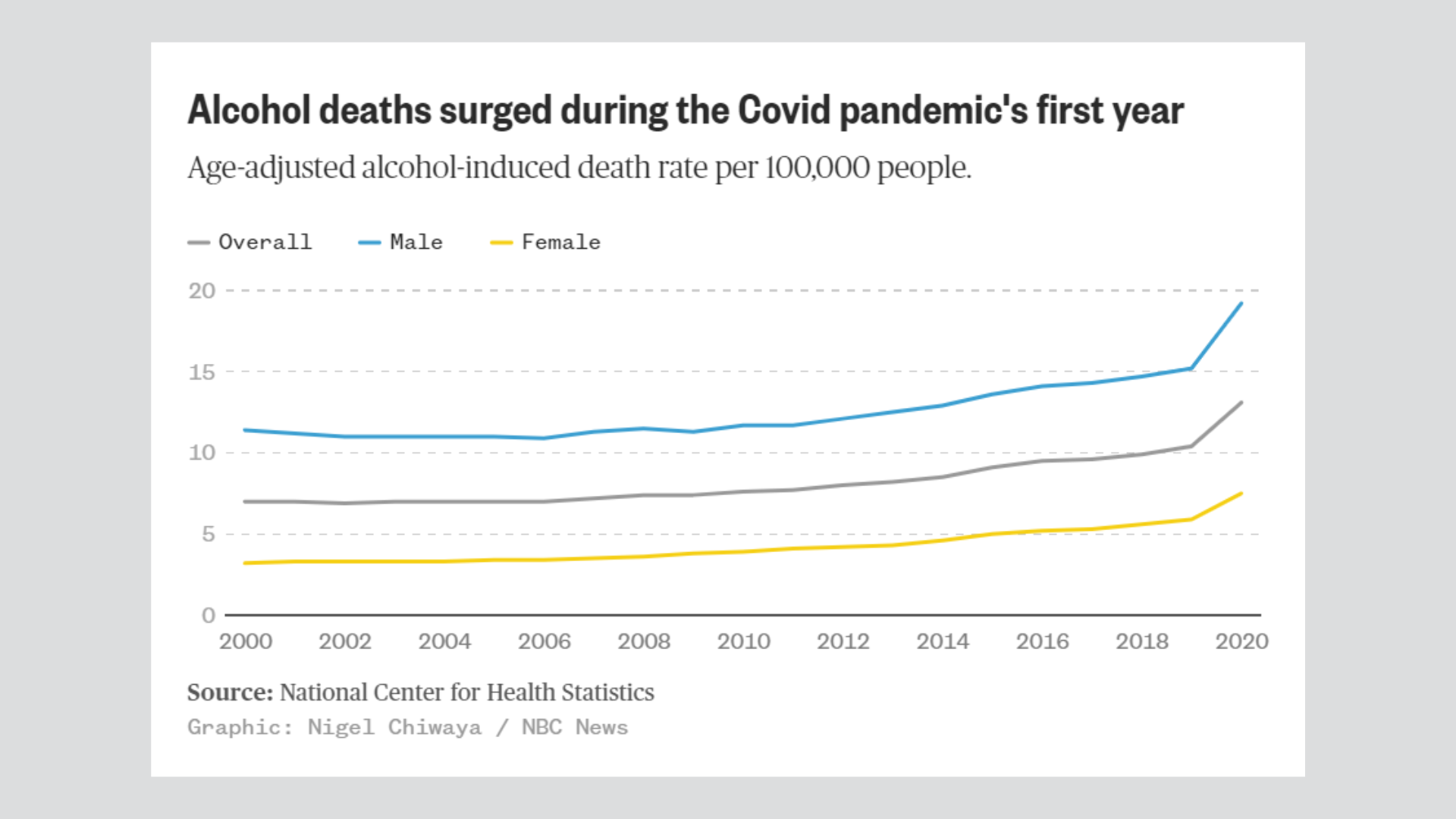A recent article from NBC News highlights a concerning increase in liver-related diseases being seen in patients between 25-34 years-old.
The story introduces Austin Johnson, a 29 year-old whose extreme drinking brought on severe liver damage that was causing him to vomit profusely and cough up blood.
While cirrhosis or severe liver disease used to be something that mostly affected people middle-aged or older, the disease is increasingly killing younger people in the U.S.
"Johnson is part of a disturbing trend of 25-to-34-year-old men and women experiencing severe, and sometimes fatal, liver damage related to their drinking."
A report published in Clinical Gastroenterology and Hepatology last year demonstrates how the pandemic exacerbated this problem, with an acceleration of deaths from alcohol-associated liver disease taking place in the first year of the coronavirus.
While the exact causes for the increase are unclear, researchers believe economic uncertainty, isolation during the pandemic and underlying trauma could be to blame. Dr. Elliott Tapper, AGA member and FORWARD Program mentor, also notes that drinks have become more potent and people are “drinking more per unit volume,” which could be another contributor.












